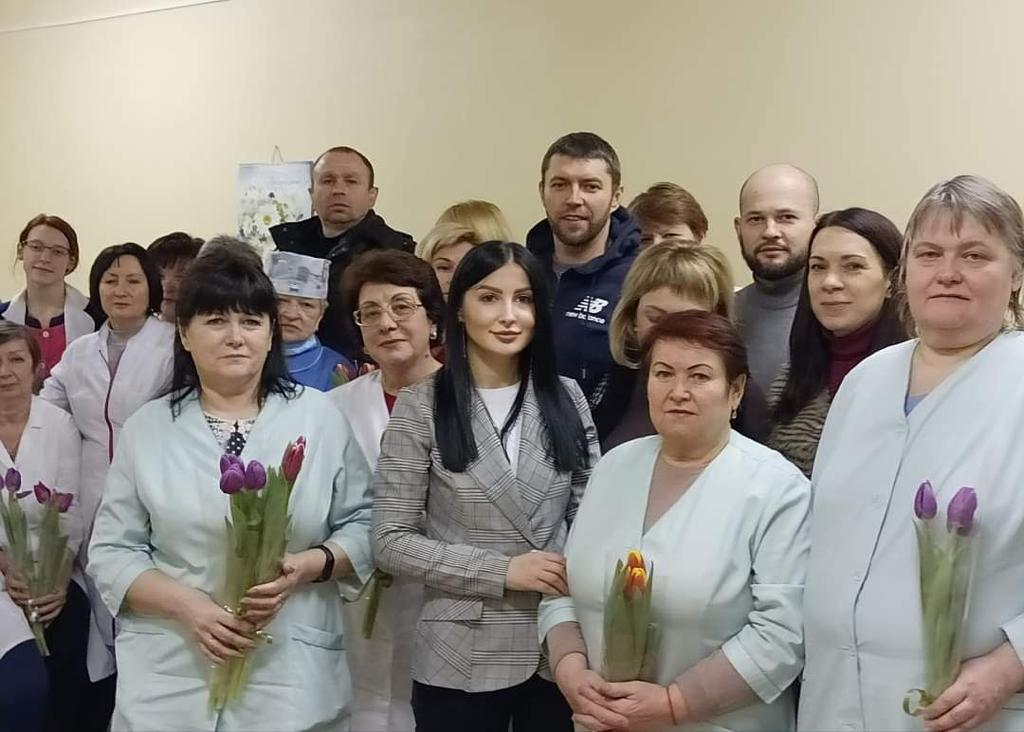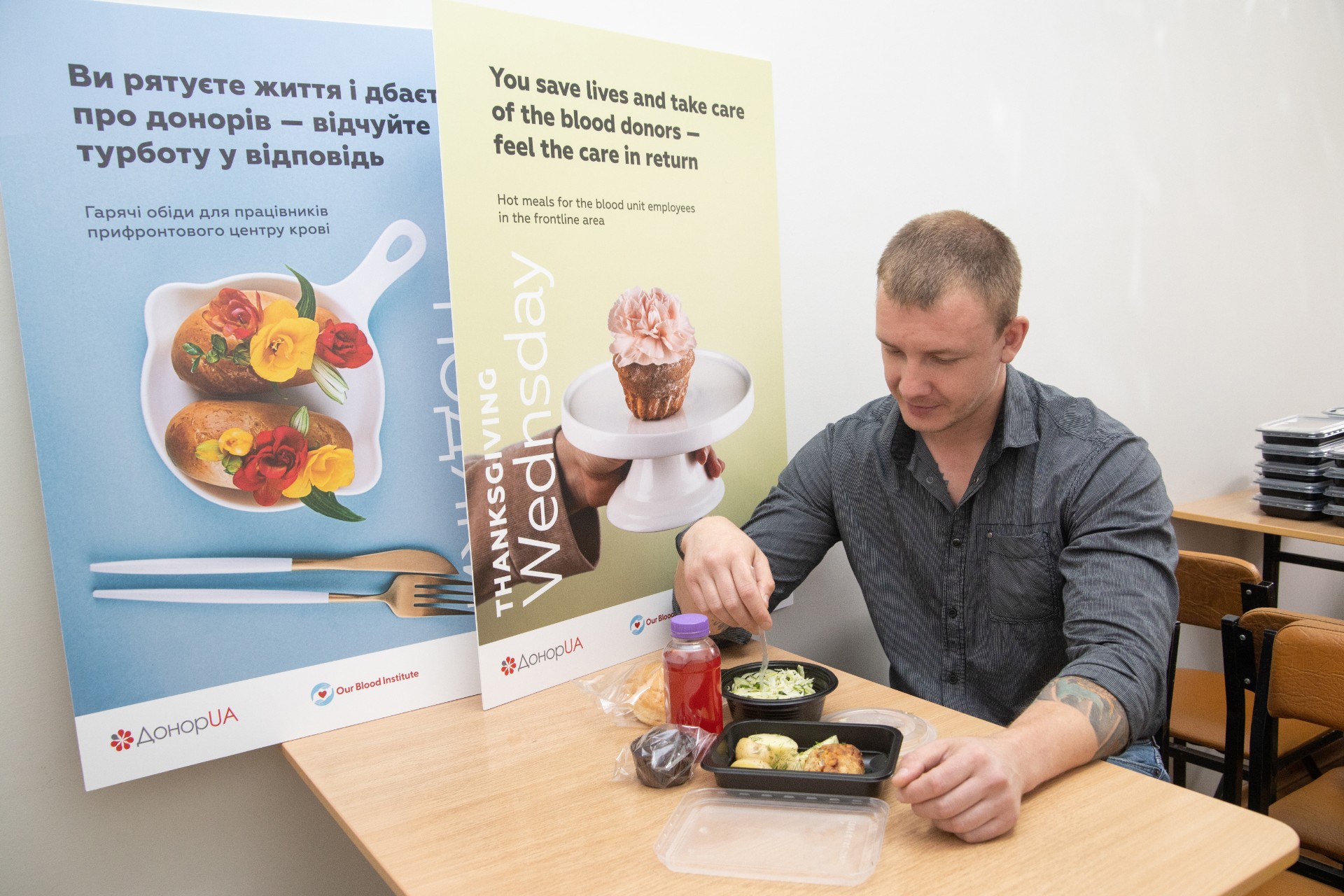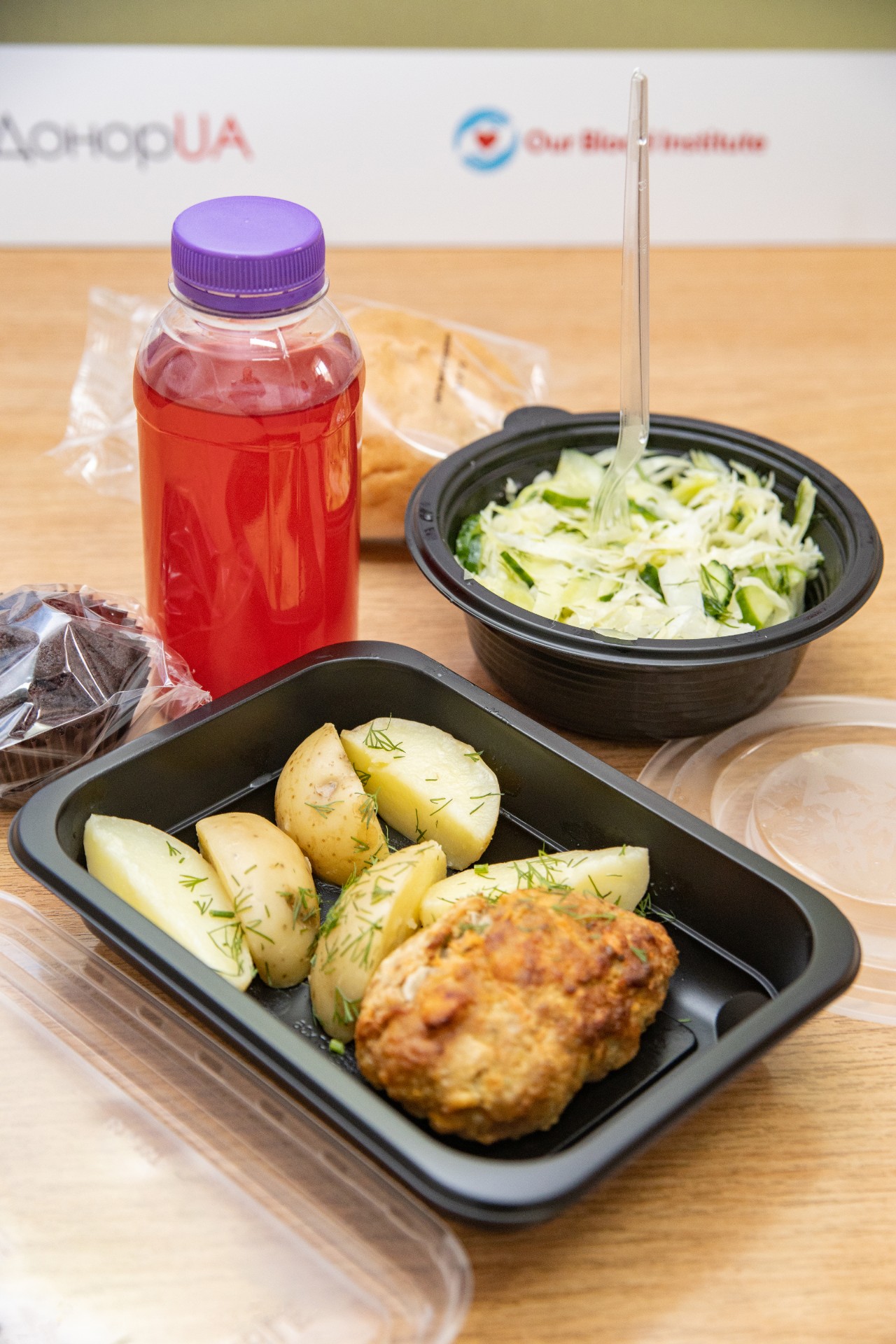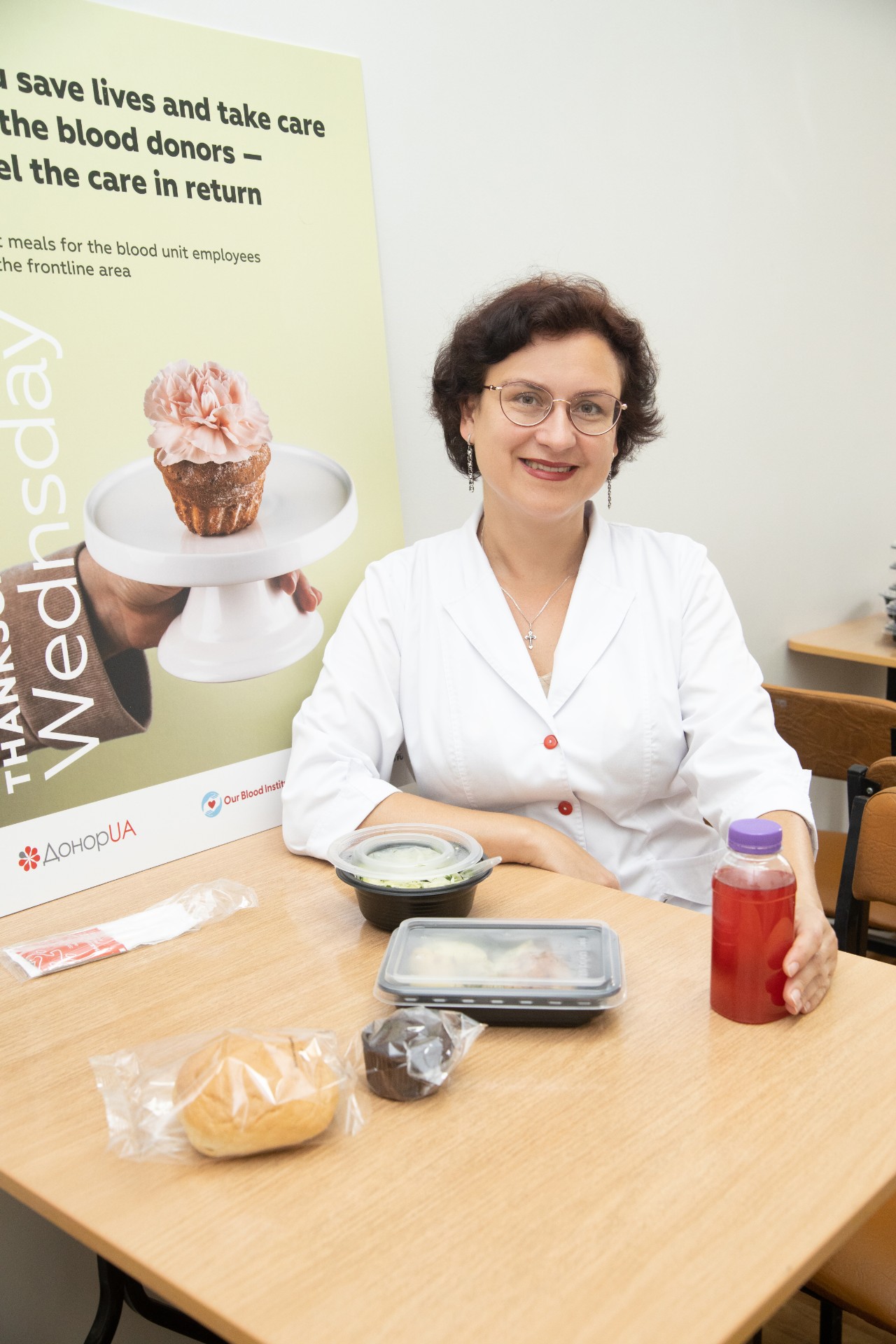The following article has been reproduced in its entirety from the Association for the Advancement of Blood & Biotherapies' September 2023 issue of AABB News. The article highlights "Thanksgiving Wednesday," a program that has provided hot meals to the employees of Zaporizhzhia Regional Blood Service Center in southeastern Ukraine every week since April 2023. The program is a partnership between Our Blood Institute, Global Blood Fund and DonorUA.
Maryna, a registrar at the Zaporizhzhia Regional Blood Service Center in southeastern Ukraine, described February 24, 2022, as the “longest and most difficult working day of her life.” That morning, explosions and air alarms reverberated across the country as Russia launched an unprecedented invasion of Ukraine. According to the Ukrainian Ministry of Health, Russia obliterated 177 medical facilities in Ukraine during the 14 months of full-scale war thus far and damaged more than 1,400. Some blood centers were ravaged in the aftermath, creating widescale challenges to the blood supply in the war-torn country.
Ukrainian residents came out in droves in response to urgent requests for blood donations. However, the surge in blood donations, including long lines of donors and endless phone calls, has placed an immense burden on blood center workers in Zaporizhzhia. Of the 10 years Maryna has worked at the blood center, she conceded the past one and a half years have been the most stressful due to the full-scale Russian invasion.
“With the beginning of the war, numerous air alarms, sounds of explosions, destruction of buildings, constant worry for loved ones, separation from relatives, losses and pain entered our lives,” stated Maryna, the first point of contact for blood donors as a registrar. “Due to the great need for blood components for health care facilities and for the security and defense forces, we need to attract even more donors. Sometimes it is not easy, and it takes a lot of time, but we are very grateful to all donors who respond to the call, find time and sometimes even come with the whole family to share blood.”
Vladyslav, a paramedic-laboratory assistant, recalled starting his medical career at the Zaporizhzhia Blood Center on the day of Russia’s invasion. His first shift lasted 36 hours.
“When I was signing the contract the day before the full-scale invasion was launched, the training air alarm was on,” Vladyslav stated. He added that the camaraderie among staff helped him transition into his position and manage the heavy workload during the war. “I made friends among my colleagues and got to know beautiful and kind people who became my second family. I learned a lot here thanks to friendly and sensitive colleagues who have been helping me acquire professional skills and knowledge all this time."








